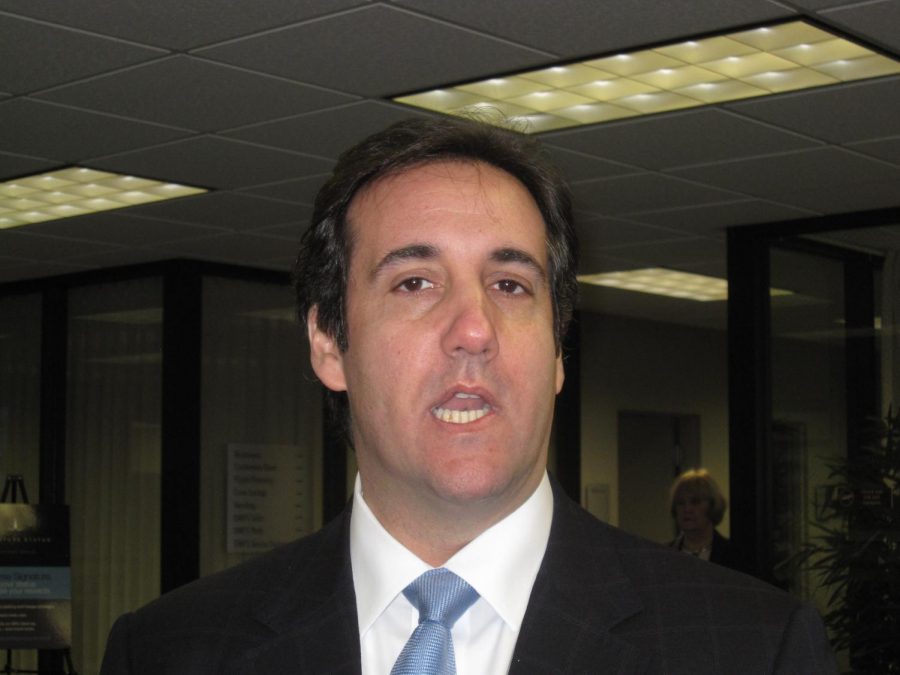Cohen and Manafort Trials
September 6, 2018
Creative Commons image: IowaPolitics.com
The week of Aug. 21, 2018 wasn’t just significant for being our first our first week back at school. On the same day, in an eastern Virginia and New York court respectively, former Trump associates Paul Manafort and Michael Cohen were found guilty of eight criminal charges each, with most of the counts related to financial crimes perpetrated during or before the 2016 Trump presidential campaign.
Paul Manafort was a part of Trump’s campaign team for six months in the later part of 2016, eventually becoming his campaign chairman from June to August of the same year. He was allegedly one of the three senior Trump campaign members present at Trump Tower when a meeting was held between the campaign and a Russian lawyer who claimed to have damaging material about then-candidate Hillary Clinton. While the meeting reportedly yielded no such information, as put by the initiator of this meeting, Rob Goldstein, it marked a “Russian effort to aid the [Trump] campaign,” and Manafort was in the middle of it all.
Manafort’s trial, which was championed by Special Counsel Robert Mueller as a part of his Trump-Russia investigation, revolved mostly around Mr. Manafort’s political dealings in Ukraine alongside Pro-Russia groups, long before the Trump Tower meeting and his relation with president Trump. While the verdict doesn’t directly or indirectly implicate the president in any way and only includes financial crimes such as bank and tax fraud, the trial has lent credibility to the Special Council’s Russia investigation by adding more incitements to Mueller’s growing list.
Michael Cohen was Trump’s personal attorney for more than a decade until this May, when his employment was terminated by Trump amidst an ongoing federal investigation into fraudulent financial dealings. One of those illegal dealings was a $130,000 payment to ex-pornstar Stormy Daniels to buy her silence about an alleged affair between Daniels and Trump back in 2006. The payment was deemed an excessive campaign contribution, because at the time of these events, an individual may only contribute a total of $2,700 per candidate, per election.
The most significant part of the trial was when Cohen stated that this payment was made “in coordination with and at the direction of a candidate for federal office for the principal purpose of influencing the election.” Trump is not explicitly named, but he was the only one of Cohen’s three clients that has run for federal office, the other two being a Republican fundraiser named Elliot Broidy and Fox host Sean Hannity. If this statement is true, and Trump directed Cohen to make this payment, then the president may have opened himself up to criminal prosecution. As said by Michael Cohen’s lawyer, Lanny Davis, on Twitter, “If those payments were a crime for Michael Cohen, then why wouldn’t they be a crime for Donald Trump?”
Analysts nationwide are hesitant to jump to any conclusions regarding a Trump indictment, as campaign finance laws have been historically tricky, but last week’s events mark a significant turning point in the investigations against the president, specifically in Cohen’s trial. It’s no longer the case that Trump associates are being prosecuted for crimes committed years ago and with no direct relation to Trump. The statement by Cohen, a longtime Trump confidant, directly implicates the president in wrongdoing directly related to his campaign.
It’s unclear whether Cohen’s testimony can or will be used against Trump, but regardless of its future legal potency, another two cases of white collar crime have been prosecuted and another two Trump associates have been caught in Mueller’s crossfire.



